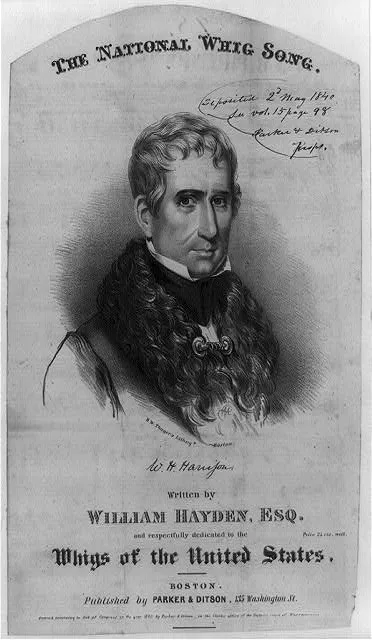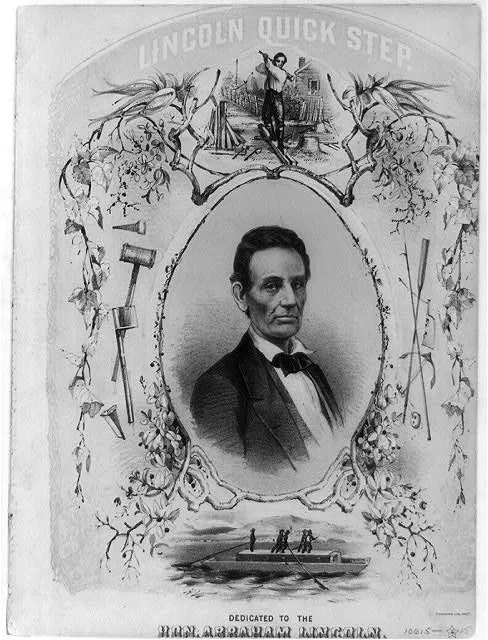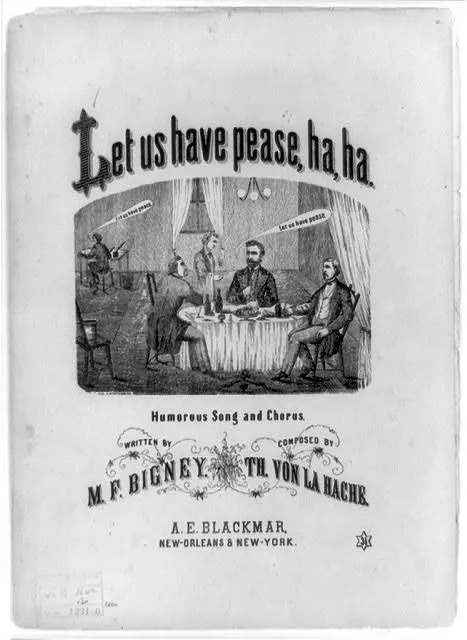Historical Tunes for Elections
“Ho, Freemen of America—Ho, voters old and young,
Come gather round the ballot box—up to the polling throng—
Leave shop and field, and counting-room, and come in strong array;
The great Whig party call on you to vote for them today…”
The opening four lines of this election song appeared in a Pennsylvania newspaper in the final weeks before the presidential election of 1844. The song went on for a total of 60 lines praising the Whig Party’s candidate, Henry Clay, and extolling the promises of the their political party’s platform and occasionally bashing their opponents. Mostly, though, the song called on voters to rally and vote, encouraging high enthusiasm and participation.
Songs for political elections can offer insightful glimpses into election moods, platforms, ideals, fears, candidates and propaganda. While music featured in political elections and moments earlier in United States History, the Election of 1800 saw the arrival of specific campaign songs for presidential candidates. The Federalist Party sang "Adams and Liberty" and the Democratic-Republicans chorused "Jefferson and Liberty.” While voting rights were limited in early U.S. history, election songs offered a way to rally voters and non-voters and encourage discussion of political issues.
Most of the campaign songs used popular melodies of their era with specially composed lyrics. Folk tunes like Yankee Doodle, Hail Columbia, The Wearing of the Green, Little Pigs, John Brown’s Body, Wait for the Wagon or Dixie are examples of music that was re-used many times with different political words. Newspapers or elections publications distributed the words of the songs. Sheet music was sold, usually featuring elaborate art that visually supported the candidate or platform. Sometimes local musical clubs or singing societies performed the campaign songs at political rallies to teach the rousing songs. The songs added to the excitement of rallies, stump speeches and parades that came to characterize 19th Century elections; as the style of campaigning changed in the 20th century, the popularity and use of campaign songs changed.

In 1840, the Whig Party incorporated campaign songs as part of the election tactics. They encouraged public performances and group singing at their political gatherings and praised candidate William Henry Harrison’s virtues in song. The image conveyed through music portrayed Harrison as relatable, heroic and humble while the lyrics also took political jabs at his opponents. The next presidential election in 1844 found the Democratic Party strategically using campaign music, too. Songs became entertainment at rallies as well to memorably convey a message and unite people through singing or chanting. Some people complained that election songs drove partisanship or started lies about candidates, but most political participants enjoyed the musical elements of campaigning and election day.

By the 1850s election music often included religious themes, drawing influence from the camp meeting style singing during the Second Great Awakening, the idea of Manifest Destiny and the abolition movement. On the eve of the Civil War, songs suggested that voting for candidates was the only way to defend the country against perceived undesirable political outcomes and even that religious devotion could be shown by one’s vote. Following the Civil War, election songs often carried military sounds reflecting the war service of the candidates and the veterans’ issues of the era. The later part of the 19th Century saw more campaign songs written to humiliate or mock opponents, reflecting shifts in political perceptions and propaganda’s evolution.

Election songs have preserved the sounds and ideas that echoed in American History. They shed light on the culture, jokes, criticisms and hopes of Americans witnessing or participating in election cycles. Sometimes the songs record the worst of American politics with racism or tone-deaf lyrics, giving an opportunity to study the flaws and challenges of the political moments. But many other campaign songs evoke the themes of liberty’s progress and the unfolding story of democracy.
Further Reading (or Listening):
- "Songs of Politics and Political Campaigns", Library of Congress.
- Election Songs of the United States, Smithsonian Folkways Recordings.






